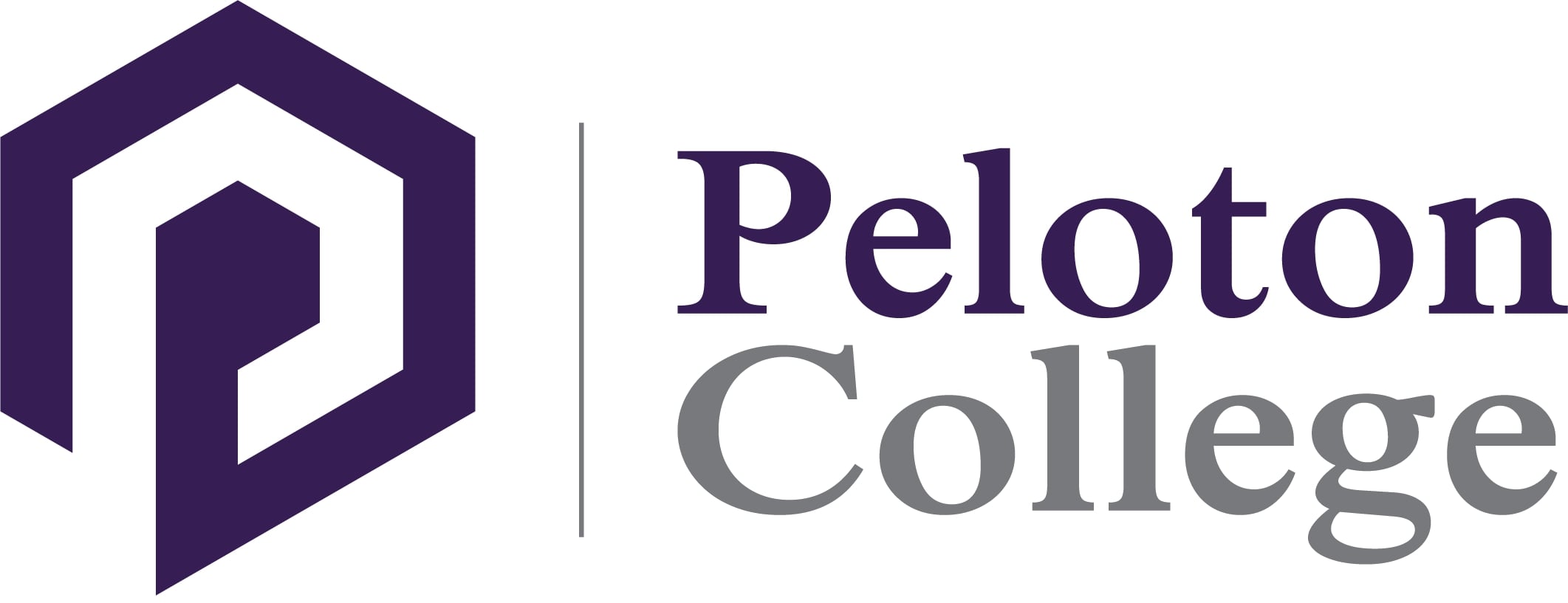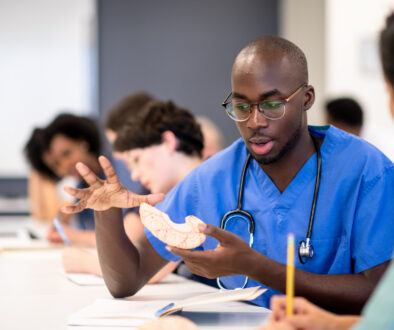Dreams DO Come True! A Graduate’s Story

Valedictorian, Wendy Guzman, graduated in the Fall of 2020. Her journey is like many others who go through the MA program at Peloton College. We sat down with Wendy to talk about her college journey.
What led you to enroll in the Medical Assistant program?
“My dream was always to be a nurse, to help people with my knowledge and the passion I have for this career. There are times when you have situations where you cannot meet your goals, but thank God for the support of my husband and children. I was able to achieve it.”
Why did you choose Peloton College?
“I didn’t choose Peloton College. Peloton College chose me! Why? Because I was looking through Facebook one day and Peloton College appears in my feed. I just filled out a few simple question and guess what? In less than 3 minutes I was contacted by the school and scheduled an interview. I thought I was never going to be part of this wonderful college because I had low self confidence due to many times trying to get into a college but the moment I put my feet in this school they didn’t let me go. I was accepted right away I was super happy my dreams were coming true.”
What was your experience like going through the program?
“I had the most excited experiences learning all about the medical field. Having amazing teachers such as Mrs. Rawls and Mrs. Harrison teaching you the right way was a blessing. What you have always dreamed of… knowing your life will turn 360 degrees in the medical field is such a wonderful feeling. You are never going to understand if you don’t have the passion.”
What was your favorite moment?
“My favorite moments would be when we go to lab practice with each other to take vitals, and draw blood. Of course, my most favorite moment was graduation day!”
What is your experience like working now as a MA?
“It feels wonderful knowing that I am helping my community with their languages. Most of them are Hispanic. I translate for them, take their vitals, give injections, draw blood and communicate with them. It was such an amazing decision I took to become a medical assistant.”
What does post graduate life looks like now?
“Graduate life changes because it opens up many opportunities in the medical field and helps you learn things that you did not imagine to be important. My life has taken a huge turn. I have more time to spend with my family and my goal is to continue studying more about medicine.
One of the things I would like to be is a radiologist and I hope to fulfill my goals and dreams next to my beautiful family and always trusting in God that everything I propose I can achieve and that no one is going to stop me!”
Want to learn more about the Medical Assistant Program?
The objective of this Medical Assistant training program at Peloton College is to prepare you for employment as an entry-level Medical Assistant performing administrative, clerical, and clinical duties within the health care field. Graduates of the Medical Assistant training program will be eligible to find entry-level employment in a medical office, hospital, and/or other health care facility as a medical assistant, medical clinical assistant, medical office receptionist, lab assistant, or medical records clerk.
The Medical Assistant program can be completed in as little as 9 months or 38 weeks. Day and evening classes are available.
What do you learn during a medical assistant program?
There are many important classes included in the medical assistant program, from anatomy to vital signs theory and everything in between. With this complete curriculum, you will be ready to work as a medical assistant on day one.
Anatomy and Physiology – anatomy is about how the body is made and physiology focuses on how the body works. Both subjects are important for medical assistants to know when helping patients.
Electrocardiography – responsible for conducting test to monitor the heart and lungs. The EKG can help doctors diagnose and treat patients with different cardiac conditions.
Vital Signs Theory – taking vital signs is important in every appointment because it can show a pattern of health for each patient and offer warning signs when something is not right. You will learn how to take body temperature, pulse rate, respiration rate, blood pressure, body weight and body height during a medical assistant program.
Medical Law and Ethics – as a medical assistant you have a medical and ethical duty to your patients. Keeping them safe and informed is paramount. Also, abiding by the HIPAA guidelines for confidentiality will be included in the curriculum, to help keep patient information private.
Medical Assisting Lab Applications – you will learn how to prepare and transport specimen to the lab. Lab specimen help to identify symptoms and issues with patient’s health. During the medical assisting program, you will learn hands-on how to process blood and other specimen to assist the doctor in making better diagnosis and treatment options.
Medical Office Practice & Patient Services – as the medical assistant, you will be the first person that the patient interfaces with. You are the liaison between the patient and the medical office. You learn about greeting patients, scheduling appointments, managing patient charts and a wide variety of tasks that help the medical office function smoothly.
Software in Medical Office – in addition to the usual Microsoft Office programs, you will learn about different medical office software for charting, medical records and other functions that you will perform in the medical office. A familiarity with learning new software is a plus as a medical assistant.
Medical Insurance and Billing – part of the job of a medical assistant is to understand and support medical billing specialist with claims processing and medical billing. You will learn the medical coding protocols behind medical insurance and billing to allow the medical office to receive funds for services offered by the practice. The medical codes you will learn include CPT, HCPCS and ICD-10.
Pharmacology Theory – although medical assistants are not able to prescribe, they can administer some vaccines and medications based on the doctor’s orders. During this class, you will learn about proper medication calculation with the help of Body Mass Index (BMS), patient weight and other factors that determine the correct dosage for a patient.
Hematology/Phlebotomy Theory – part of what you do as a medical assistant is draw patient blood to identify different symptoms to help treat blood disorders. You will practice blood draws and prepare for your duties as a medical assistant that can perform phlebotomy.
Career Development – you are prepared for the real world inside a medical office. Not only how to get a job with resume building and mock interviews but how to traverse the medical office, manage personal dynamics and work as a team as a valued member.
Medical Assistant Externship – the best part about attending a medical assistant program is the externship that will further your hands-on experience in a medical assisting role. The externship is great experience and something to put on your resume when you look for that first job.



